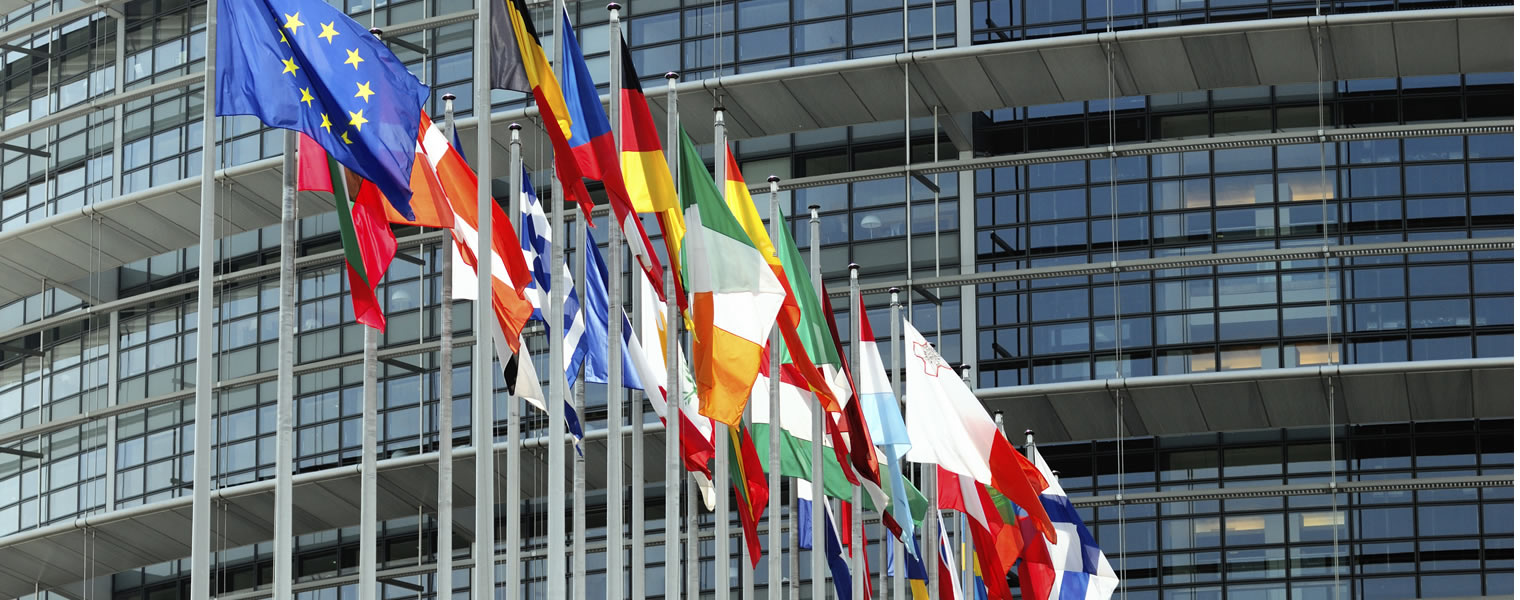Hartley News Online Your alumni and supporter magazine
On 24 June we all woke up to the news that the UK had voted to leave the European Union (EU). Southampton Connects finds out what this means for our staff, students and research – and some of the wider implications across the UK.
So what happens now?
Vice-Chancellor Professor Sir Christopher Snowden explains that there won’t be any immediate changes for the University.
“Although this is a period of uncertainty, it is now clear that the UK will remain a member of the EU for at least another two years. It will now be up to our new prime minister to make any formal negotiations to leave the EU. From that point, the UK will have two years to make an orderly and negotiated transition. We will work closely with any colleagues who are affected by this to ensure that they are supported through this process.”
“Ours is an institution that constantly looks to the future, whether educating new generations of students or developing groundbreaking research, our mission will transcend this political change. As guardians of this University, we will work tirelessly to protect our principle of internationalisation.”
What are the potential impacts for University staff?
Gavin Costigan, Director of Public Policy@Southampton, outlines the key issues.
“Twelve per cent of our staff here at the University come from other EU countries. They are part of the 3.3 million UK residents from the other 27 member states of the EU who face uncertainty as to what the future arrangements will be,” he says. “The ability to move and work free of visas and all the accompanying bureaucracy is an important part of our success in attracting the best people to work here. Until the situation is clear, there is a risk that we could lose some of our best staff, and fail to recruit others.”
Sir Christopher explains that staff and students of all nationalities are highly valued members of our University community and will continue to be very welcome at Southampton.
“I would like to reassure you that there will be no short-term or material changes to the immigration status of current or prospective EU staff,” he says. “Our staff and students from Europe are vital to the success of our University – both now and in the future. Over the coming years I am looking forward to continuing our exceptional relationships both with Europe and with partners around the world.”
What about prospective students?
Gavin explains the current rules for EU students. “Students from any EU member state can currently study anywhere in the union at the same cost as domestic students. In England, this means paying tuition fees of up to £9,000 per year. EU students, like their colleagues from the UK, don’t need to pay these fees until they graduate and are earning over £21,000 a year; they are entitled to tuition fee loans to cover costs during their studies.” By contrast, international students from outside the EU need a visa to study in the UK and pay a significantly higher level of tuition fee in advance, with no access to student loans.
“My expectation is that, over time, students from EU countries will move to the system for students outside the EU. The government has assured current EU students, and those due to start in September 2016, that the existing arrangements will cover them for the whole of their studies, which is a helpful clarification. However, this is currently less clear for students who will start in 2017 or 2018.
“In the long term, it’s likely that fewer students will come to the UK from EU countries, although each one might be paying a larger fee. Whether this will be a financial benefit or deficit for UK universities is yet to be determined,” he adds.
The University is working closely with higher education bodies and government to gain further clarification on the visa and fee status of non-UK European Union students, and to pursue other key policy areas as the UK negotiates its future relationship with Europe. Sir Christopher says:
The EU referendum result does not change our ambition to continue welcoming talented students and staff from all countries and pursue funding for our world-class research.
You can view the latest information for University students and staff on our Europe web page and through SUSSED.
How could this affect our ability to conduct world-leading research?
Gavin explains the key issues: “The EU’s research programmes provide very significant research funding for UK universities. Equally important are the collaborative partnerships that are formed, the exchange of people and ideas, and the joint PhD projects that emerge.
“In the short term, there is a danger that UK universities are not seen as partners of choice by other EU institutions, concerned that the UK may leave the EU part way through the grant for the research. We have to provide what reassurance we can to our EU partners.
“In the long term, the government might buy into the EU’s Horizons 2020 programme (and any successor) as a non-EU member. Alternatively, it might increase domestic expenditure on research from money saved by not paying the EU subscription.”
Professor Tim Elliott, Pro Vice-Chancellor (Research and Enterprise) emphasises that here at Southampton we are committed to pursuing research in the global scientific landscape. “We will be working with our colleagues to enable UK research to maintain its world-leading position, and will continue to forge strong partnerships with our colleagues in Europe. More than ever, we need to strengthen our networks in Europe and continue our involvement in Horizon 2020 and European Research Council programmes.
“There will be no changes to our ability to apply to these programmes until we have formally negotiated our exit from the EU. A number of mechanisms are currently in place for non-EU members to actively participate in European research and development programmes. The extent of the UK participation in the future will come down to negotiations.
We are fully engaged with Universities UK and Research UK Office in Brussels to influence discussions to secure European funding for our research.
“We will be working with the Russell Group to press for a clear message about future UK participation in Horizon 2020 from the Department for Business, Innovation and Skills,” he adds.
The EU Office will continue to play a facilitation role for the University’s research community during the current period of uncertainty and will assist you with all your bids and contracts in the meantime. For more information, email euoffice@southampton.ac.uk
For more information, visit our Europe web page.
To find out more about policy and funding changes in the higher education sector as a whole this month, read Gavin’s Higher Education Digest.
What impacts will there be on the wider economy in the UK?
Dr Michael Hatcher, Lecturer in Economics, says we need to learn lessons from our past.
“Looking forward, the real danger is that the UK may become inward-looking and protectionist in the wake of this recent backlash against globalisation. Indeed, many of those who voted for Brexit see themselves as ‘losers’ from the structural shifts in the economy that have occurred over recent decades, and their discontent has been channelled at the outside world. As Gordon Brown puts it: ‘The elephant in the room is globalisation – the speed, scope and scale of the seismic shifts in our global economy. And the most obvious manifestation of the world we have lost is the hollowing out of our industrial towns as a result of the collapse of manufacturing in the face of Asian competition. These towns are home to a disproportionate share of the semi-skilled workers who feel on the wrong side of globalisation and who opted to vote leave. Unable to see how globalisation can be tamed in their interests, they have, not surprisingly, become recruits to an anti-globalisation movement whose lightning rod is migration.’
“Discontent with globalisation that is targeted at immigration and international competition is nothing new. As the economic historians Jeffrey Williamson and Kevin O’Rourke have pointed out, the first great era of globalisation which took place from 1850 to 1913 was met with a backlash of protectionism and immigration controls in nation states, both in Europe and the Americas. The backlash was modest at first, but it intensified in the late 19th century and during the 1914–45 interwar period, as tariffs were raised and controls on immigration were introduced and then tightened.
“The UK must beware of such a popular backlash. The first great era of globalisation provides us with an important lesson here: those countries who gained most from globalisation embraced free trade and open borders; those who pursued protectionist policies did not ‘beggar their neighbours’ but themselves. And yet it was the first group of countries who chose to adopt the policies of the second, once anti-globalisation sentiments took hold. As we move forward from the referendum, these lessons of economic history must not be forgotten. Indeed, our future prosperity will depend on it.”
What about politics in the UK?
Dr Nick Clarke, Professor Will Jennings and Professor Gerry Stoker explain that this is a challenging time for British politics.
“British politics has long been headed for troubled waters. Whatever the prospects for life outside the EU, there seems little prospect of returning to some bygone golden age. In both politics and economic life there are divisions that are becoming sharper and more difficult to contain.
“Disaffection with politics and politicians has been on the rise since the Second World War. Survey data reveals that more and more citizens view British politicians negatively. This rise of anti-politics can be explained in part by citizens’ changing images of the ‘good politician’. In the immediate post-war period, politicians were judged against criteria of good character, principles, a mind of their own, self-control, strength, competency, vision and personality. Just ahead of the 2015 general election, these criteria had expanded: they should now be strong, intelligent, competent, principled, and trustworthy; but also sensible yet fun, hard-working yet cool and effortless, an exceptional personality yet normal and ordinary. The image of the good politician used to be multi-faceted but coherent and just about achievable for some politicians. It has become contradictory, and would be difficult to achieve under any circumstances.
“The tail winds of anti-politics carried the campaign to leave the EU to victory on 23 June. Distrust of politicians is one of the strongest predictors of Euroscepticism – alongside Englishness, anxiety about immigration and economic pessimism. Polls also showed ‘outers’ as distrustful of ‘experts’, preferring to trust the man or woman in the street. This explains why the anti-establishment rhetoric of the Leave campaign, and its disregard for experts, proved so effective to the surprise of many.
Regardless of Britain’s exit from the EU, the winners and losers of the global economy will not change.
“Globalisation cannot be reversed, it can only be slowed. Taking power back from Brussels and restoring it to Westminster will not alter the fact that economic growth in the Britain is centred upon city regions – in the cosmopolitan settings where support for membership of the EU was strongest.
“Devolution will favour wealthier, growing areas and do little to reduce inequalities within the UK’s economy. The roots of anti-politics sentiment are deep, and after Brexit will continue to pose a sequence of increasingly hard choices for policy-makers.”
For more information and other views on the EU referendum result, visit Public Policy@Southampton’s Views on Europe blog.


